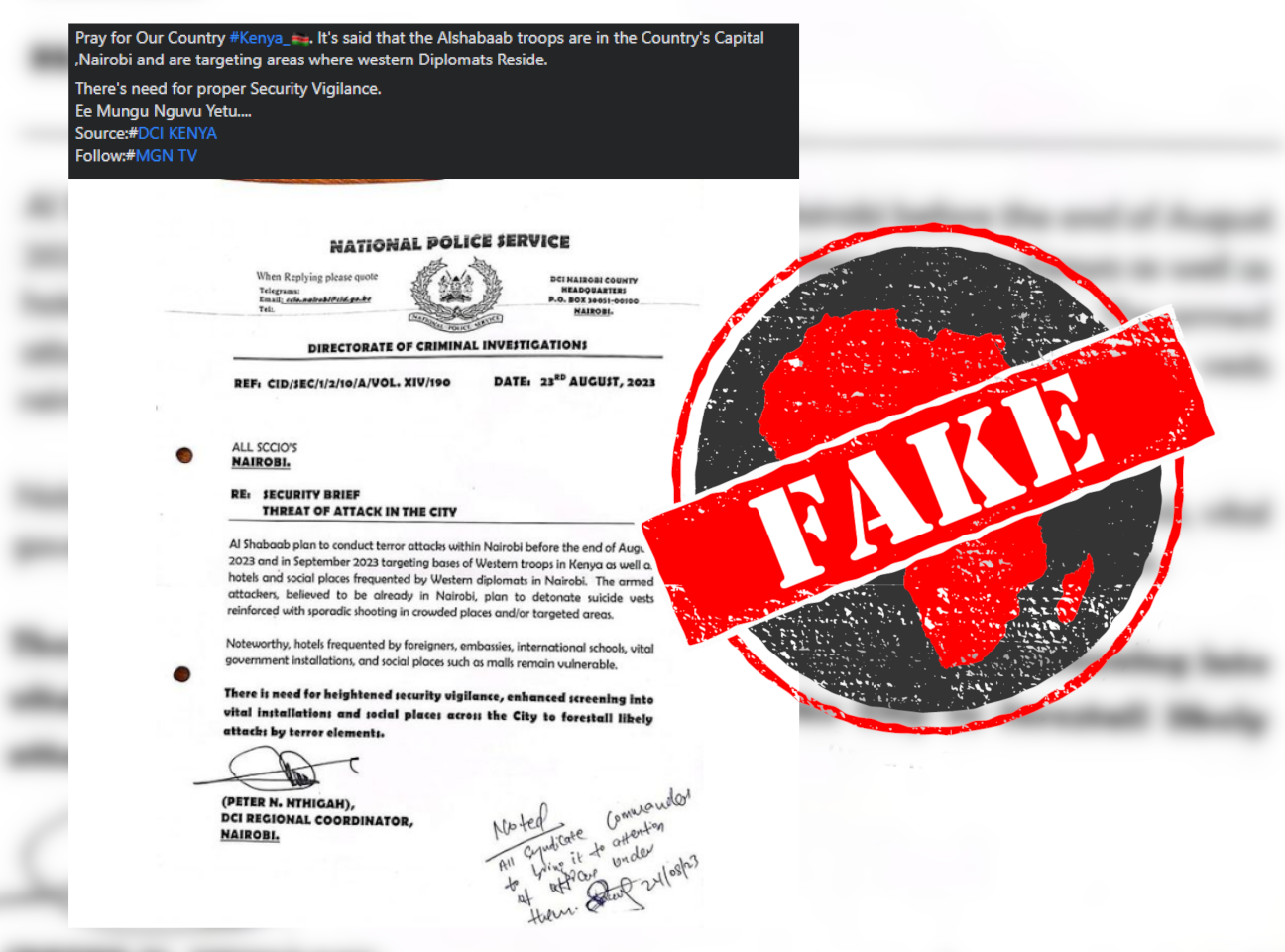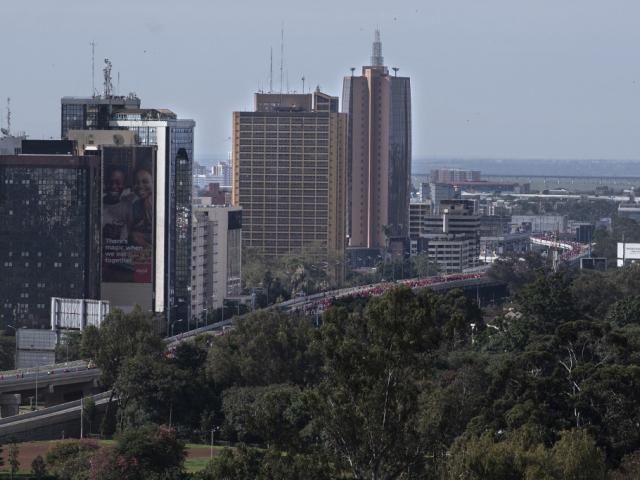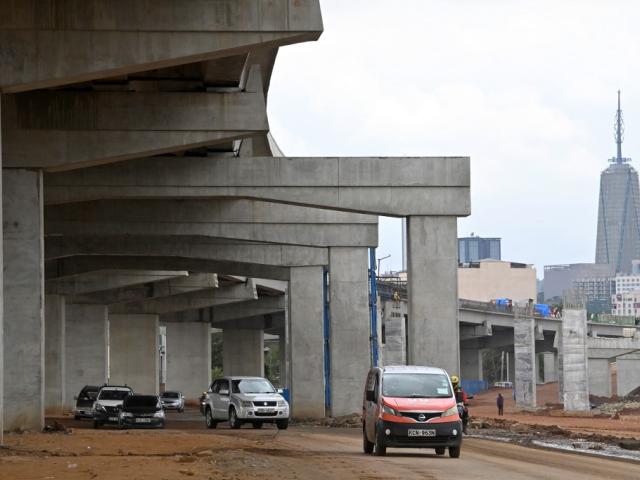IN SHORT: A memo seemingly from Kenya’s Directorate of Criminal Investigations warns of an imminent terrorist attack in the country’s capital. But the DCI has branded the document a fake.
“Al Shabaab plan to conduct terror attacks within Nairobi before the end of August 2023” reads the start of a memo purportedly from Kenya’s Directorate of Criminal Investigations (DCI).
The “security brief” document, titled “Threat of attack in the city”, identifies hotels frequented by foreigners, embassies, international schools, vital government installations and public places, such as malls, as vulnerable.
Dated 23 August 2023, the document bears the logo of Kenya’s National Police Service and appears to be signed by Peter N Nthigah, the DCI regional coordinator.
Al-Shabaab is a Sunni Islamist military and political organisation based in Somalia and active in East Africa, including Kenya where the group has carried out several terrorist attacks.
In May 2023 Kenya and Somalia agreed to reopen the border between them. It was officially closed in October 2011 due to Al-Shabaab attacks on Kenyan soil. However, the reopening of the border has been delayed following a new wave of attacks.
The document has been shared here, here, here, here, here, here, here, here, here, here, here, here, here, here, here, here, here, here, here, here, here, here and here.
But did this memo really come from the DCI, causing concern for the personal safety of the capital's residents? We checked.

Document fake, not from DCI
On 26 August the DCI posted the document on its official X account, with the words “fake” printed on it in red.
“This report doing rounds in sections of the media is fake news,” the post reads.
The alleged memo should be disregarded.
Republish our content for free
For publishers: what to do if your post is rated false
A fact-checker has rated your Facebook or Instagram post as “false”, “altered”, “partly false” or “missing context”. This could have serious consequences. What do you do?
Click on our guide for the steps you should follow.
Publishers guideAfrica Check teams up with Facebook
Africa Check is a partner in Meta's third-party fact-checking programme to help stop the spread of false information on social media.
The content we rate as “false” will be downgraded on Facebook and Instagram. This means fewer people will see it.
You can also help identify false information on Facebook. This guide explains how.




Add new comment